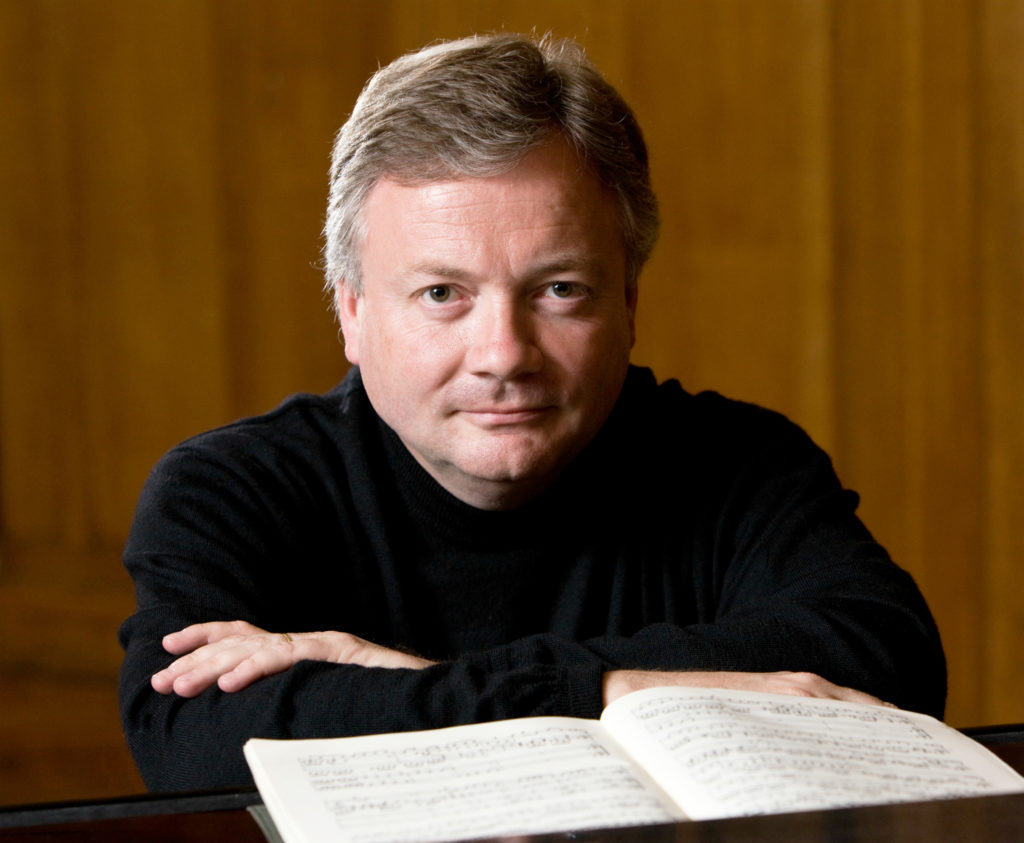
courtesy of john wood
This semester, the 24 members of Schola Cantorum — a chamber choir at the Institute of Sacred Music — will not hear one another’s voices in-person. Whether they will cross the Atlantic for their European summer tour is questionable. But the ensemble’s members are as busy as ever.
“We’re kind of flying by the seat of our pants,” said Rhianna Cockrell MUS ’21, a student manager for Schola Cantorum. But even amidst uncertainty, her fellow chorus members are taking on new artistic projects. “They’re recording albums, some of them are working on social justice projects. One of my colleagues is working on writing a novel.”
Typically, the academic year begins with Schola’s intense audition process — one of the most selective in the country — followed by twice-weekly rehearsals, where members prepare four to five projects until December.
“It’s treated like a professional choir, which it is in many ways,” said David Hill, the chorus’ principal conductor and a professor of choral conducting at the institute. Because the chorus is composed of students, commitment is not full-time, but Hill said the standard is incredibly high.
Cockrell said in-person rehearsals often bring ensemble members together and referred to the chorus as her “main Yale family.” But with public health guidelines restricting in-person singing, the family’s weekly meetings must be reimagined.
At last week’s opening meeting for the ensemble, members went through the usual introductions and icebreakers, but then grappled with the limits of virtual rehearsals. It is imperative for choral singers to hear one another in order to create a cohesive sound. Hill said that even if the choir were to sing over Zoom, hearing one another would be impossible.
“If we were actors, everyone knows ‘it’s my turn to speak now,’ but you can’t do that with music. Everyone is in it together,” Hill said.
Still, the group is planning a plethora of engaging events. Cockrell and Hill said the ensemble hopes to release recordings. Cockrell said they hope to host a variety of guest speakers to present lectures on vocal technique and musical styles.
“Before the pandemic happened, Schola’s social media presence was pretty run-of-the-mill,” said Edward Vogel ’TK, who runs social media for the group. “Now that we’re in such a unique situation, it’s offered us an approach to grow our presence. We’ve been able to come up with a lot more content that focuses on the community that is Schola, so it’s much more member-centric.”
Since the pandemic began, their social media has featured a Virtual Concert series as well as the weekly “New Haven Sings,” which features New Haven music groups outside of the Yale community. In the spring, the group’s Instagram account ran a series called “#membercrushmonday,” which dove into different members’ backgrounds and academic interests.
“It’s great to be able to focus on the members that make up the community, rather than the community made up of members,” Vogel said. “People forget that these are just kids that are going back to the library after rehearsal.”
These members’ outside projects are not always music-related. For some, it’s recording an album. For some, it’s writing a novel. For Cockrell, it’s a colloquium project that interrogates the appropriation of Black spirituals by white performers.
Hill expressed concern about the quality of virtual performances. But as he spoke over Zoom, he noted that the movement of his lips was matching up well with the sound of his voice.
“Music doesn’t sound great over Zoom,” Hill said. “But it’s getting better. And Zoom is really trying hard to make it work better.”
Hill said the music world has potential to learn from socially distanced performances. In the U.K., where he lives, regulations allow certain orchestras to perform, as long as musicians perform with sufficient distance between them.
“The playing is actually sounding amazing because of it,” Hill said. “Why? Because everyone is trying harder to ensure they’re together. There are all sorts of things coming out of this, which might make the musical landscape a new one, and a different one and hopefully, a more mature one.”
Cockrell said she hopes that after the pandemic, the music community will ensure events are accessible virtually, since many people are unable to attend in-person performances for either financial or physical reasons.
“There’s always been an issue in the Western classical music industry with accessibility,” Cockrell said. “I’m hoping that once directors become more familiar with the process of live streaming, they’ll be able to make them accessible on the internet for free for people who otherwise might not be able to experience that music.”
The ISM also hosts ensembles like Yale Camerata, the Battell Chapel Choir and the Marquand Chapel Choir.







